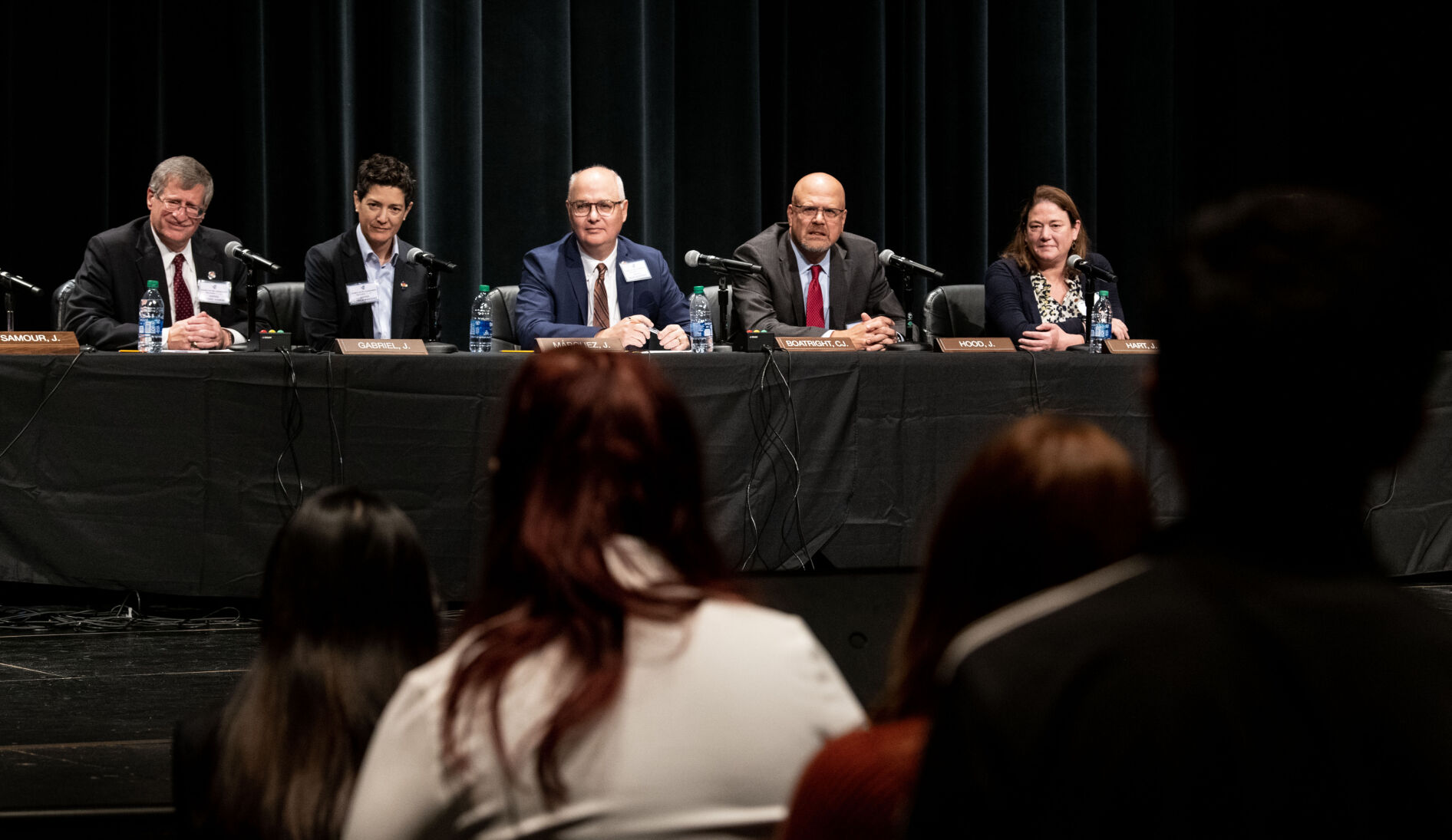State Supreme Court takes on homeowner insurance issue, shows interest in 2 criminal cases

The Colorado Supreme Court on Monday agreed to decide whether two Boulder County homeowners may pursue their insurance claim for hail damage, even though they reported it to their insurer 10 days beyond their policy’s deadline.
The legal question and facts are virtually identical to another case the court accepted in December out of Denver, Gregory v. Safeco Insurance Company of America. In both instances, a hailstorm damaged the plaintiffs’ roofs, but they did not learn about the damage until later, when contractors alerted them.
The homeowners then filed claims with their insurance companies, but outside of the one-year deadline written into their policies. The insurers denied the claims on that basis.
Colorado courts have long held that insurance companies are generally relieved of their obligation to cover a claim if the policyholder gives notice beyond the policy’s deadline. However, the Supreme Court has carved out limited exceptions, on the grounds that injured parties should receive compensation and insurers should not incur a windfall based on a technicality.
The resulting “notice-prejudice rule” allows certain late-filed claims to move forward if the delay does not compromise the insurer’s ability to investigate or defend against the claim. The Supreme Court will now decide whether to extend the notice-prejudice rule to homeowner policies.
The case is Runkel v. Owners Insurance Company.
The Supreme Court also directed the government to respond to two petitions from criminal defendants who appealed to the highest court directly, bypassing the Court of Appeals.
In Weld County, authorities arrested Jacob Woodside in September 2021 for driving under the influence. Two months later, he accumulated another drunk driving charge in Grand County. He pleaded guilty to both offenses, but the Grand County case resolved itself before the Weld County case.
Woodside then raised a question unaddressed by Colorado’s appellate courts: Should his second chronological offense in Grand County actually constitute a prior conviction, such that his original offense in Weld County is now a second conviction with harsher punishment?
“Under the statute for the DUI sentencing it states that it is a second offense if at the time of sentencing there is a prior conviction,” prosecutor Erica White argued during a July 2022 hearing in Weld County Court. “If this would be sentenced as a first offense, then the defendant is getting a windfall basically of being able to have two DUIs in a very short span of time and being able to plead to both of them as first offenses.”
Judge John Briggs agreed that the chronologically-first offense was now, due to Woodside’s prior guilty plea and conviction in Grand County, a second offense. Woodside then appealed directly to the Supreme Court, arguing the judge effectively increased Woodside’s punishment based on conduct occurring after his arrest.
Briggs “enhanced Mr. Woodside’s sentence based on something that had not even happened yet on the date of offense – a subsequent offense that the county court then treated as a prior conviction simply because it proceeded more quickly to sentencing,” wrote public defender Andrew Sidley-MacKie.
The Supreme Court asked the government to respond to Woodside’s petition by Feb. 22.
In Arapahoe County, the criminal case against Cori Ross Speed has been pending for nearly 3.5 years. He stands accused of stabbing his caretaker multiple times.
Speed, who is developmentally disabled, has undergone multiple evaluations to gauge whether he is competent to stand trial. Nearly every evaluation has deemed him incompetent, meaning his disability prevents him from understanding the criminal proceedings or assisting in his defense.
Under Colorado law, if an evaluator gives the opinion that there is no “substantial probability” an incompetent defendant will be able to stand trial within the “reasonably foreseeable future,” the court must hold a hearing about whether a defendant will likely have his competency restored. If the answer is no, the criminal case is dismissed and civil commitment proceedings may begin.
In December 2021, Paul Spragg issued a report after evaluating Speed, finding no substantial probability that Speed would become competent in the foreseeable future. District Court Judge Ben L. Leutwyler responded that he did not have enough information on the issue, so he ordered another evaluation.
Psychologist Elizabeth Donegan then evaluated Speed three times in 2022. On each occasion, she agreed he remained incompetent, but would not offer an opinion about whether Speed could regain his competency in the foreseeable future.
Speed’s attorney then asked for the hearing outlined in state law. An evaluator has to give an opinion on the likelihood a defendant will be restored to competency, the defense argued. Because Donegan did not, Leutwyler should rely on the Spragg report, which found no likelihood of restoration.
Leutwyler held a hearing in November, where he disagreed with the defense.
“There are conflicting reports,” he noted, ordering the continuation of services to restore Speed to competency.
Speed appealed to the Supreme Court, asking it to direct Leutwyler to hold a hearing based on Spragg’s finding of no likely restoration to competency. The court has told the government to respond by Feb. 21.













